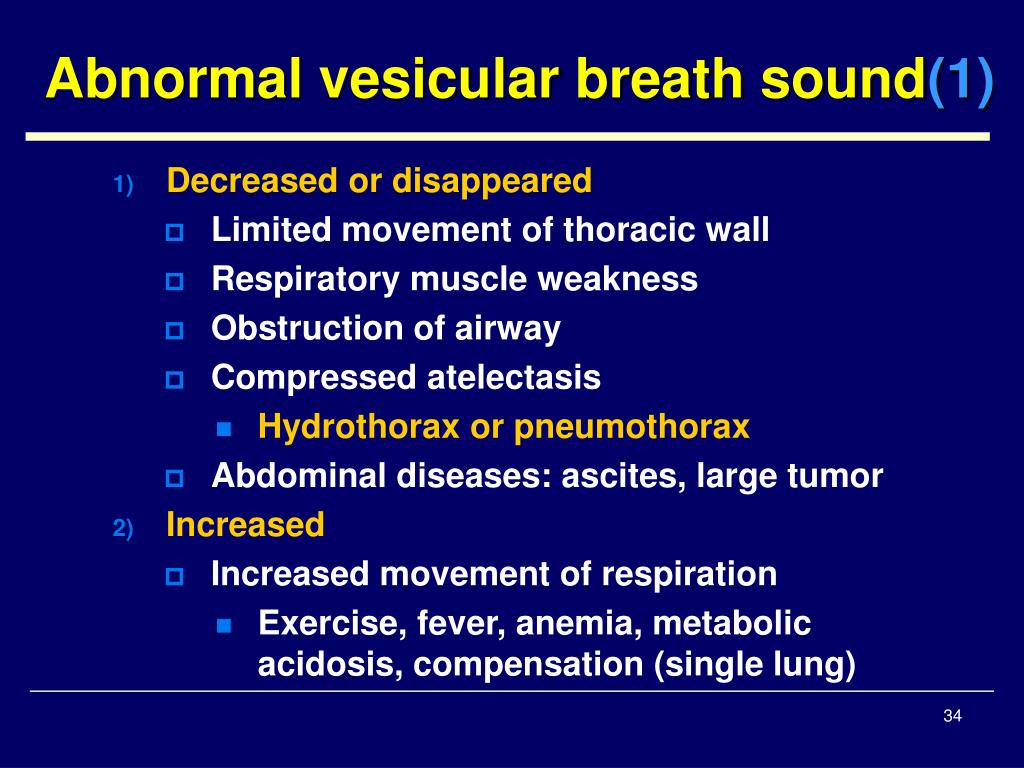

Pneumonia is an infection of one or both lungs, which causes the air sacs found in the lungs to fill up with pus or fluid. It is essential to listen for sounds characteristic of pneumonia, since bronchitis can sometimes develop into pneumonia. Those with bronchitis may wheeze or have rhonchi that improves with coughing. It usually develops due to a viral infection. Bronchitisīronchitis occurs when the lungs’ airways swell and produce mucus in the lungs. People with asthma may have normal vesicular breath sounds but with prolonged expiration, or they may have audible wheezes in various places around the chest. Below are some conditions that can cause these sounds: AsthmaĪsthma is a chronic condition that causes airways to become inflamed and narrowed. Listen for the quality and intensity of the breath sounds, as well as for the presence of abnormal sounds, or discrepancies between the sounds on either side of the chest.Ībnormal or adventitious breath sounds can be a sign of an underlying condition. It is important to hear at least one complete breath cycle at each site.
Vesicular breath sounds normal full#
Again, listen for one full breath in each position, moving the stethoscope from the top of the chest and working down. If they are lying down, roll them onto the other side.



 0 kommentar(er)
0 kommentar(er)
